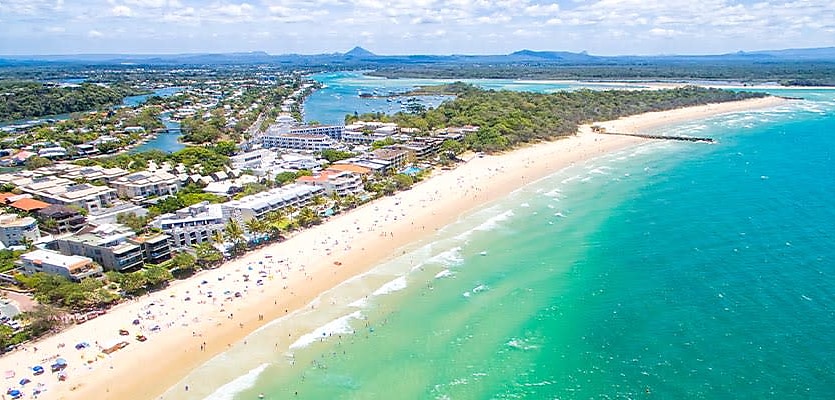Planning regulations require certain properties on Queensland’s popular Sunshine Coast to seek council approval before owners transform their dwellings into short-term rental accommodations.
Code Property Group, based in the Buddina region on the Sunshine Coast, revealed it has seen numerous short-term rentals transition towards longer-term accommodation following council advice they were unsuitable for this use based on both zoning and building date — and thanks to a recent council crackdown.
Under the council’s Sunshine Coast Planning Scheme 2014, properties built prior to 2014 should have no issue renting out their dwelling as a short-term or holiday rental, such as an Airbnb, as long as the dwelling is compliant with regulations and lawful.
However, any properties built after this date, specifically those located in low-density zones currently utilised as short-term accommodation, could be required to submit a Material Change of Use (MCU) or Development Approval (DA) application to the local council in order to seek approval to utilise the property as a holiday rental or short-term stay. In seeing this transition, Code Property recognised that these properties are “well-maintained, high-quality houses in areas that are seeing high rental demands and permanent tenants and therefore can achieve high rental yields”.
Sunshine Coast council’s approach to short-term holiday rentals is not isolated. Last year, the Brisbane council revealed it would “include a steep rate hike for property owners trying to make money off the short-term accommodation marketplace”.
Additionally, the council enforced 50 per cent higher rates for short-term rentals as opposed to those charged to their long-term counterparts.
Driving Brisbane council’s decision was incredibly low vacancy rates across the city and short-term rentals stripping further stock from the long-term rental market.
As part of its crackdown, the Sunshine Coast council is urging owners deliberating whether to convert their property into a short-term rental to contact its development department prior to establishing the dwelling as an Airbnb as the requirements for short-term rentals differ depending on property location, zoning, and compliance.
According to SQM Research, the region’s residential vacancy rate concluded 2022 at 1 per cent as part of a rapid, pandemic-induced decline that saw the number of available properties plummet from 2.7 per cent in April 2020 as interstate migration to the Sunshine State drastically increased throughout the COVID-19 pandemic as residents in other states chased loose pandemic restrictions and a limited number of extended lockdowns.







You are not authorised to post comments.
Comments will undergo moderation before they get published.